Oak Valley Flowers lies in the heart of the Hottentots-Holland mountain range about 70km from Cape Town, South Africa. The area is widely known for its apples and pears that have been cultivated in that region since 1899. Flowers grown are all for the local market including Florists, Wholesalers, and Chain stores.
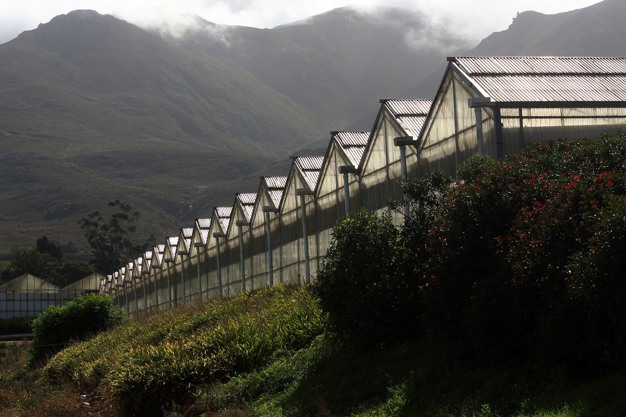
Biological drive
Oak Valley Flowers have been striving to produce flowers with as little as possible harmful pesticides and other chemicals. "Our main challenge is the control of trips as it acts as a vector for viral diseases. The surrounding agricultural practices including fruit, wheat, and canola farming, increase the natural thrips population, making it so much more of a challenge," according to Ruhan von Wielligh, production and general manager of Oak Valley Flowers. One such threat is the tomato spotted wilt virus (TSWV), twisting their flower petals and leaves, and leaving it with browned marks.
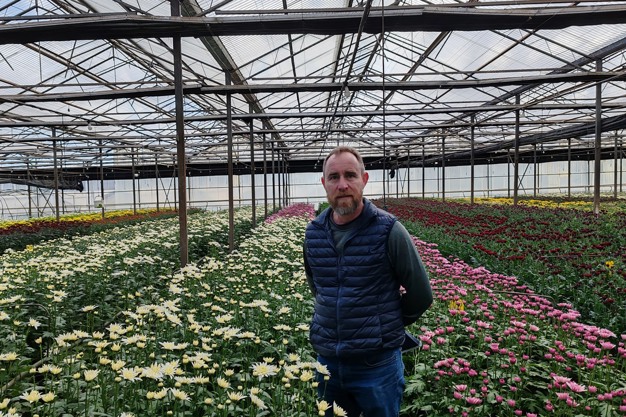
Ruhan von Wielligh, production and general manager at Oak Valley Flowers
Biological control in the form of special biological formulations supplied by REAL IPM and Koppert, combined with predatory mites, mass trapping, and beneficial parasitic nematodes are the foundation for the successes achieved. Ruhan says that "it is essential to understand the life cycle of the targeted pest to ensure the most effective treatment is used for a specific life stage. Parasitic nematodes for example target the larvae stage in the soil."
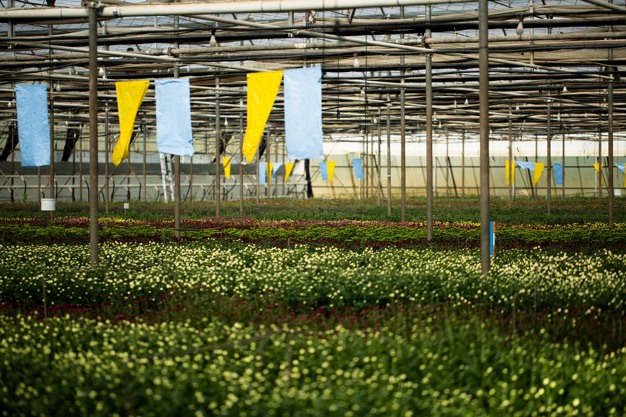
Careful selection of viral-resistant varieties on all crops prone to viral infection has further assisted them in keeping viral fallout to the minimum.
"Climate control also contributes to a healthier crop by creating optimal growing conditions and will in many cases also reduce fungal diseases by creating a less suitable climate for the vectors," Ruhan explains. Their infrastructure, consisting of greenhouses, heating, cooling, and screening assists in creating optimal growing conditions for the plants while it gives tools by which they can manage diseases. "Humidity control is achieved by ventilating to a limited extent while the greenhouses are heated, artificially or from rising morning temperatures."
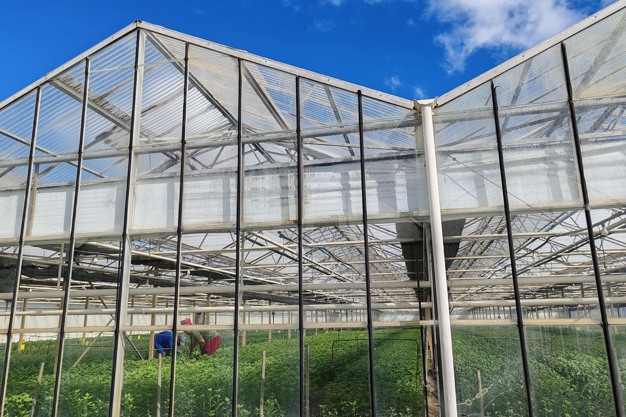
Diversity
Their flower division spans an area of 16ha which consists of greenhouses, shade houses, and open fields. Due to their target market's requirements and distance from the South African Flower Auction (Multiflora), they have the opportunity to grow and supply a large variety to their customers.
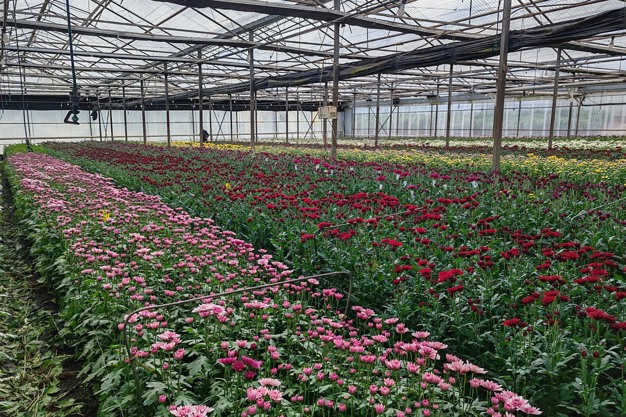
This has led them to grow over 40 different Flower types, of which some have more than 40 varieties within a type. "Our production consists of Chrysanthemums, Liliums, Alstroemeria, Seasonal flowers and Greenery. We grow around 75% of the total flowers we sell, with roses, carnations, Gerberas, and Indigenous covering the remaining 25%," Ruhan says.
Oak Valley Flowers gets their plant material from Kenya, Uganda, Italy, and the Netherlands. The plant material is of very high standard and backed by reputable breeders including Royal van Zanten, Konst, Danzinger, Dummen Orange, Deliflor, and more.
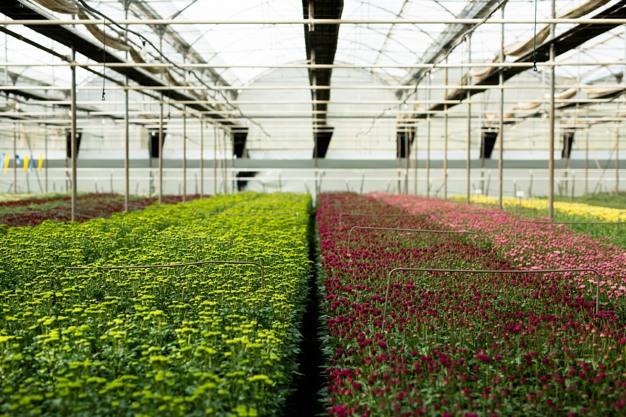
Farming for the Future
Ruhan stated that their biggest client is Woolworths, a relationship that started in 1986 when Oak Valley Flowers supplied the very first cut flowers ever to Woolworths.
Woolworths has a Farming for the Future assessment which is a live process according to Tom Murray, technical manager at Woolworths. "It is important to note this is not an audit but rather an opportunity where Woolworths works together with their growers towards a more sustainable growing approach. The main focus is on soil health and water use on farms. IPM is also integrated into the assessment as fertilizers and pesticides have direct influences on water and soil health."
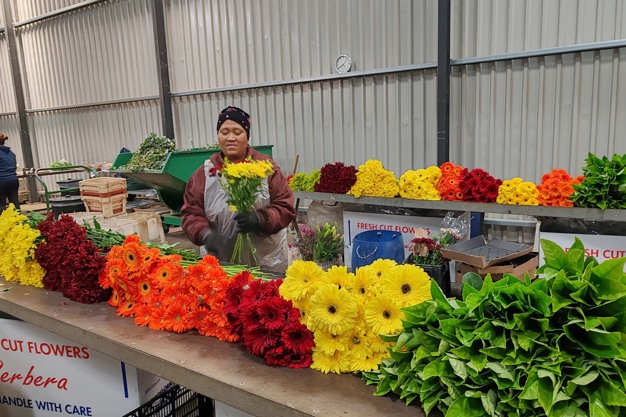
"Woolworths is encouraging the use of biological alternatives and a reduction in the use of highly hazardous pesticides, with the end goal of having zero pesticide residues on the fresh produce that we sell. In this aspect, Oak Valley is also a top scorer with their IPM methods. This vision is driven in South Africa by Woolworths due to the country's poor registration levels in horticultural pesticides. Not being able to use many pesticides makes IPM one of the most feasible ways forward. In citrus for example there are about 100 products registered for use where we only have about 10 in horticulture and even these pesticides might get banned soon," Tom stated.
The Farming for the Future innovative driven by Woolworths has led many farms to responsible regenerative farming practices.
Woolworths has a current project on LED lights and how they can use them in trapping certain pests, like tuta absoluta in tomatoes.
Logistics: Plant material
Importing plant material remains a challenge in terms of phytosanitary regulations. According to Ruhan, The Department of Agriculture requires "inspection within 10km of point of entry. Air freighted material is checked at inspection sites close to the airport, but sea freight is a challenge. Liliums are imported in 40ft reefers. The reefer runs at -1.8C to ensure the bulbs stay dormant. Inspection at unrefrigerated pack houses holds risks that need to be addressed."
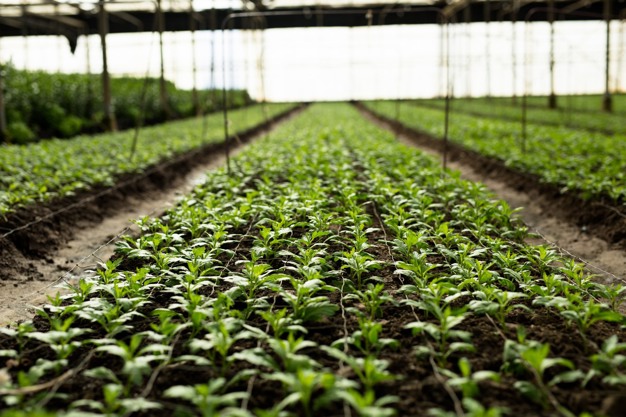
Logistics: Flower distribution
Flowers at Oak Valley are harvested on clean water, bunched, and placed on product-specific post-harvest treatment after which it is dispatched on a transport solution to their final destination.
To add to this a strict cold chain protocol is followed to ensure optimal quality. Florist deliveries happen at night, done by refrigerated trucks, giving the florist the advantage of starting with fresh stock during the day.
"We try to harvest early in the morning starting with hydrangeas at 05h00. We harvest, grade, and market our flowers all before 12h00 so they can get transported the same day."
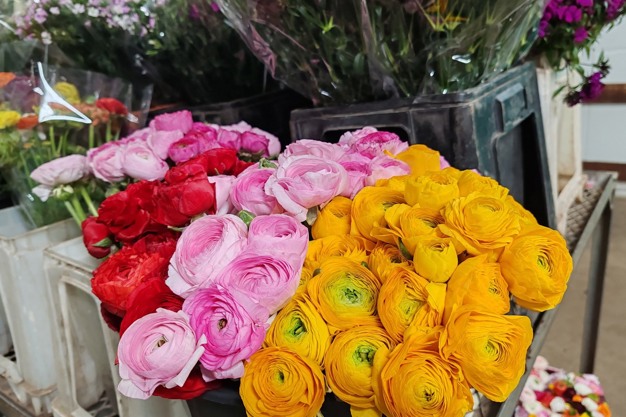
Greenhouse development and climate
At Oak Valley Estate the climatic challenges are mostly experienced during winter with low night temperatures, strong wind, and rain. The fact that they are positioned close to a mountain range also reduces their sunlight hours during winter. They are not making use of assimilation lights due to the high energy cost involved.
A large portion of their seasonal crops are grown under unheated 'Rain cover'- type greenhouses as protection against wind and rain is crucial. According to Ruhan, their summer crops have a turnaround cycle of about 12-14 weeks, while a similar crop will take almost 22 weeks in winter. "Planning needs to be in place to ensure these delays do not manifest as erratic supply volumes."
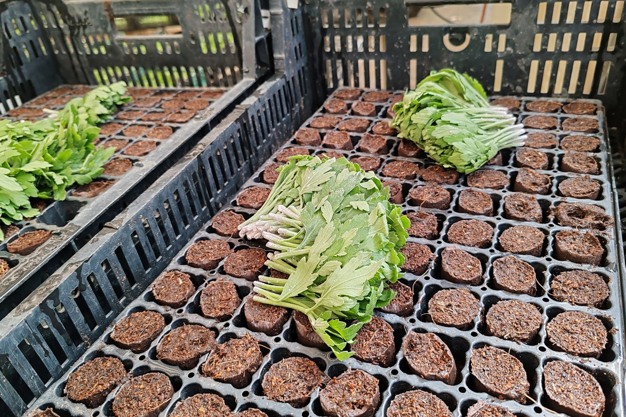
"Our Chrysanthemums cover the biggest area and are also accommodated in heated greenhouses with screens. This crop can be manipulated and production steered in an almost perfect way. It makes it thus very popular with growers that target special events like Christmas. A period of 12 days is required for rooting, followed by a vegetative stage 'long day' stage of anything between 12 to 22 days. Once the plant goes into the 'short day' stage, it slowly turns towards reproductive, flowering 45 to 60 days later."
For more information:
Oak Valley Flowers
oakvalley.co.za
Ruhan von Wielligh
Email: ruhan@oak-valley.co.za
